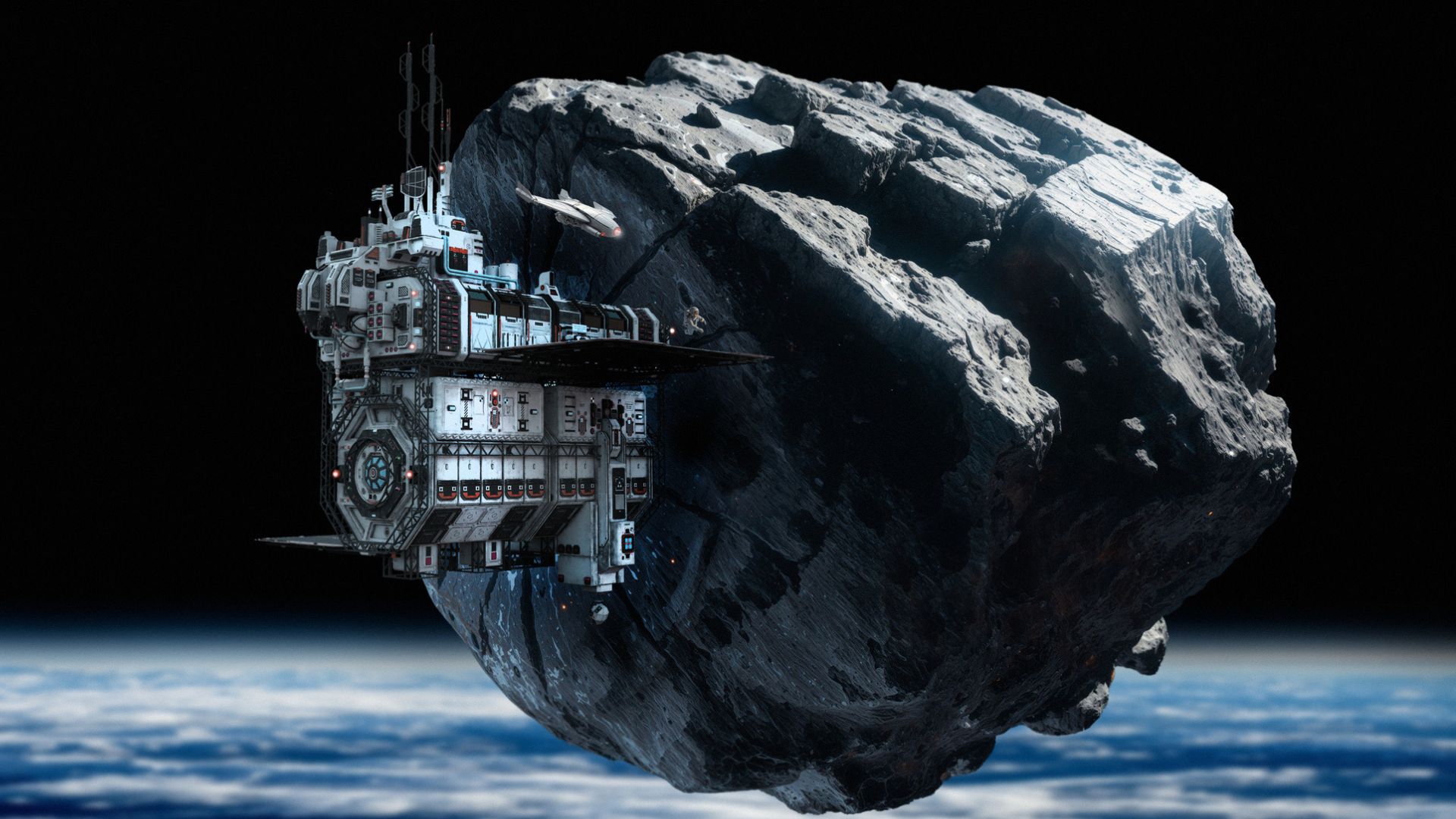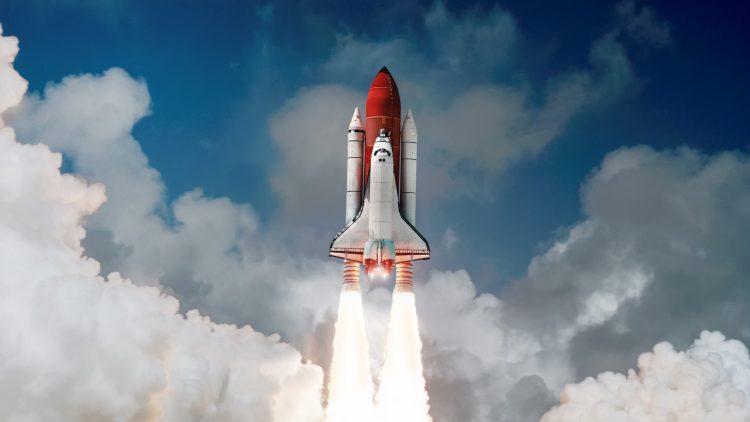Space. The term alone conjures up visions of stars, planets, and the boundless expanse that surrounds our Earth. It has long captured the imagination of humanity, evoking both awe and a sense of infinite possibilities. From early mythologies about celestial beings to modern explorations by spacecraft, humans have always been drawn to the vast unknown beyond our planet.
The question of whether space is the “final frontier” or “just the beginning” is more than a philosophical inquiry. It is a question that carries profound implications for our future—both as a species and as inhabitants of the universe. As we stand on the precipice of new space exploration breakthroughs, it is a question worth examining in depth.
The Final Frontier: A Look Back at Human Exploration
The phrase “final frontier” is often associated with the legendary opening lines of Star Trek, which celebrated humanity’s ongoing exploration of space. But what does this notion really mean?
The idea of space as the “final frontier” suggests that it is the last great unknown that humanity must explore. For centuries, human civilization has pushed the boundaries of knowledge, whether it be in science, geography, or technology. The discovery of the Americas, the development of the steam engine, the advent of the internet—all of these milestones signified the conquest of frontiers that seemed, at the time, insurmountable. Space, in this context, appears as the ultimate horizon.
In the 20th century, this dream seemed closer than ever. The Space Race between the United States and the Soviet Union culminated in monumental achievements such as the first human to orbit the Earth (Yuri Gagarin, 1961), and most famously, the Apollo 11 mission that landed Neil Armstrong on the Moon in 1969. These events not only proved that space exploration was possible but also demonstrated that it was achievable on a human scale.
The iconic images of astronauts walking on the Moon ignited the public’s imagination. For a brief time, it felt as if we were on the cusp of reaching the stars, and space truly seemed to be the final frontier for mankind’s exploration. However, after the Apollo missions, human space exploration slowed considerably. The Moon was explored, and space travel beyond Earth’s orbit became a rare and expensive endeavor.
The International Space Station (ISS) has since become the primary platform for international cooperation in space exploration, but even the ISS, despite being a remarkable achievement, pales in comparison to the grandiose promises made in the 1960s and 1970s. The “final frontier” was no longer about conquering new celestial bodies but about managing and maintaining the infrastructure in space.
The New Dawn of Space Exploration: A Beginning, Not an End
While space may have seemed like a final frontier for a long time, today’s space exploration landscape is dramatically different. The question of whether space is the final frontier or the beginning of something much larger has never been more relevant.
At the heart of this shift is the emergence of private space companies such as SpaceX, Blue Origin, and Virgin Galactic. These companies are pushing the boundaries of what was once thought possible for non-governmental organizations. Their work in reusable rockets, space tourism, and interplanetary missions has opened up entirely new opportunities for space exploration.

SpaceX’s goal to send humans to Mars is a clear example of how space is no longer the domain of just government entities. By developing the Falcon Heavy rocket and the Starship spacecraft, SpaceX has shown that we are moving from the era of occasional missions to a future where interplanetary travel is conceivable. Elon Musk’s ambitious vision is for humanity to become a “multi-planetary species,” and Mars is the next logical target.
Blue Origin, founded by Jeff Bezos, has a slightly different focus but one equally as ambitious: to create a future where millions of people can live and work in space. Their work on the New Shepard spacecraft, designed for suborbital tourism, and their longer-term goal of building space habitats in orbit, indicates that the dream of living in space is becoming less of a science fiction fantasy and more of a potential reality.
Virgin Galactic, founded by Richard Branson, is primarily focused on suborbital tourism, offering passengers the chance to briefly experience weightlessness. While this may seem more like a luxury, it’s indicative of the rapidly changing nature of space travel. Space, once solely a realm for astronauts and scientists, is now becoming increasingly accessible to civilians.
These developments signal a critical shift in how humanity views space. Rather than being the “final frontier” where only a few venture, space is becoming the ultimate “beginning” of a new era—one where the possibility of human expansion beyond Earth seems not only plausible but increasingly inevitable.
Beyond Earth: Colonization, Resources, and a New Economy
The idea of space as a beginning isn’t just limited to exploration; it extends to the future of humanity. As Earth’s resources become strained and the population grows, the idea of colonizing other planets, particularly Mars, becomes increasingly plausible.
Space colonization offers the potential for humanity to spread across the solar system and beyond, reducing the risks associated with a single-planet civilization. Colonies on Mars, the Moon, or even space stations could serve as insurance against existential threats—such as asteroid impacts, supervolcanic eruptions, or even anthropogenic risks like nuclear war or climate change. If humanity can create sustainable outposts in space, the species would be less vulnerable to these planetary-scale threats.
Furthermore, space exploration promises to unlock vast new resources. Asteroid mining, a field that is slowly but surely becoming more practical, could provide access to precious metals, rare earth elements, and other materials that are increasingly scarce on Earth. Companies like Planetary Resources and Deep Space Industries have been laying the groundwork for the mining of asteroids, which could one day fuel space exploration and revolutionize industries on Earth.
Then, there’s the economic potential. Space, once the domain of government-funded agencies, is fast becoming a new frontier for private industry. From satellite communications to space tourism, the commercial sector is already making its mark. Companies are vying for control of low Earth orbit, where satellites provide essential services like GPS, communications, and Earth monitoring. But the real game-changer could be the development of space-based manufacturing or even tourism infrastructure in orbit.

In addition to Mars and the Moon, the idea of building human habitats in the vast reaches of space itself is gaining traction. Orbital habitats like O’Neill cylinders (large, rotating space stations that simulate gravity) could offer a new type of living space, creating self-sustaining communities that are not dependent on Earth’s resources.
The Ethical and Philosophical Implications
While the technological and economic implications of space exploration are exciting, they also raise complex ethical and philosophical questions. One of the most pressing issues is the potential for space colonization to repeat the mistakes made during the colonization of the Americas, Africa, and other parts of the world.
Who owns space? Should private companies or nations claim ownership of celestial bodies like the Moon or Mars? How can we prevent the exploitation of resources in space, and ensure that space exploration benefits all of humanity, rather than just a privileged few? The 1967 Outer Space Treaty, which forbids the appropriation of celestial bodies by any nation, is a step in the right direction, but as private companies become more involved, these rules will likely need to be reexamined and updated.
Another key consideration is the ethical treatment of potential life forms. If humanity begins to colonize other planets, what responsibility do we have to protect indigenous ecosystems—if they exist? Should we preserve the natural environment of other planets, or is it justified to terraform and alter them to make them more habitable for human life?
These ethical dilemmas are not theoretical. As we prepare to send humans to Mars, we must confront these questions head-on. The decisions we make now will shape the future of space exploration and determine how humanity interacts with the cosmos for generations to come.
A New Era of Exploration: The Quest for Knowledge and the Pursuit of Wonder
Perhaps the most enduring aspect of space exploration is not its practical implications but its ability to inspire. The quest to understand the universe is one of humanity’s oldest pursuits. The stars have always been a source of wonder and mystery. With the advent of telescopes and space missions, we have only scratched the surface of the cosmos.
The discoveries made by spacecraft like the Hubble Space Telescope, the Voyager probes, and the upcoming James Webb Space Telescope have already transformed our understanding of the universe. From the discovery of exoplanets in distant star systems to the exploration of the outer reaches of our solar system, every mission brings us closer to answering fundamental questions about our place in the cosmos.
And yet, for all that we’ve learned, space remains a vast unknown. New phenomena—like black holes, dark matter, and the possibility of extraterrestrial life—continue to fuel our curiosity. The future of space exploration holds the promise of uncovering more of these mysteries, expanding our knowledge not just of space itself, but of the nature of reality itself.
As we push further into space, we may discover new frontiers of human potential, new ways to live and work, and perhaps even new answers to age-old questions about life, the universe, and everything in between.
Conclusion: Just the Beginning
Space may have once been considered the “final frontier,” but as technology advances, private space companies rise, and the dream of interplanetary life becomes more achievable, it is clear that space is just the beginning. The universe offers a canvas for humanity’s imagination and ingenuity, a place where the possibilities are limited only by our vision and determination.
As we step into this new era, the final frontier is no longer a destination—it’s the start of an ongoing journey that will shape the future of civilization itself.











































Discussion about this post